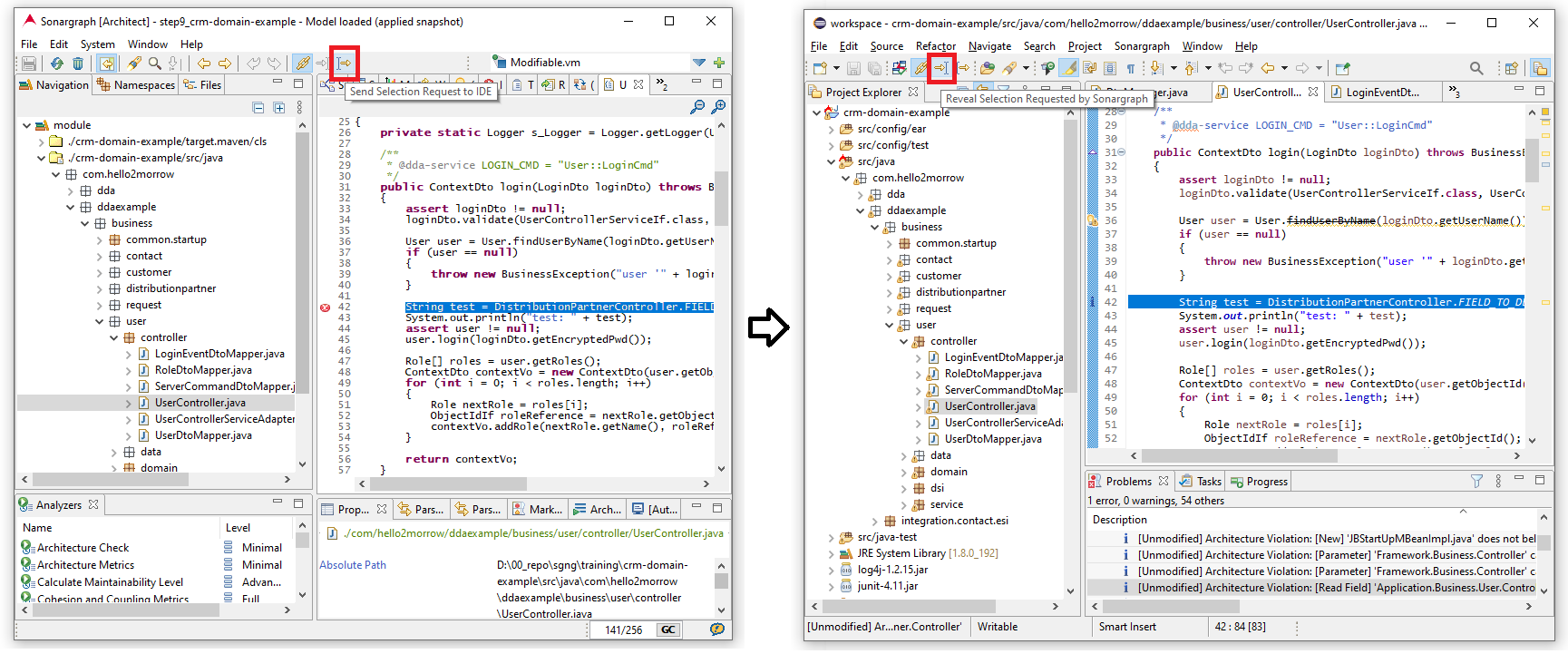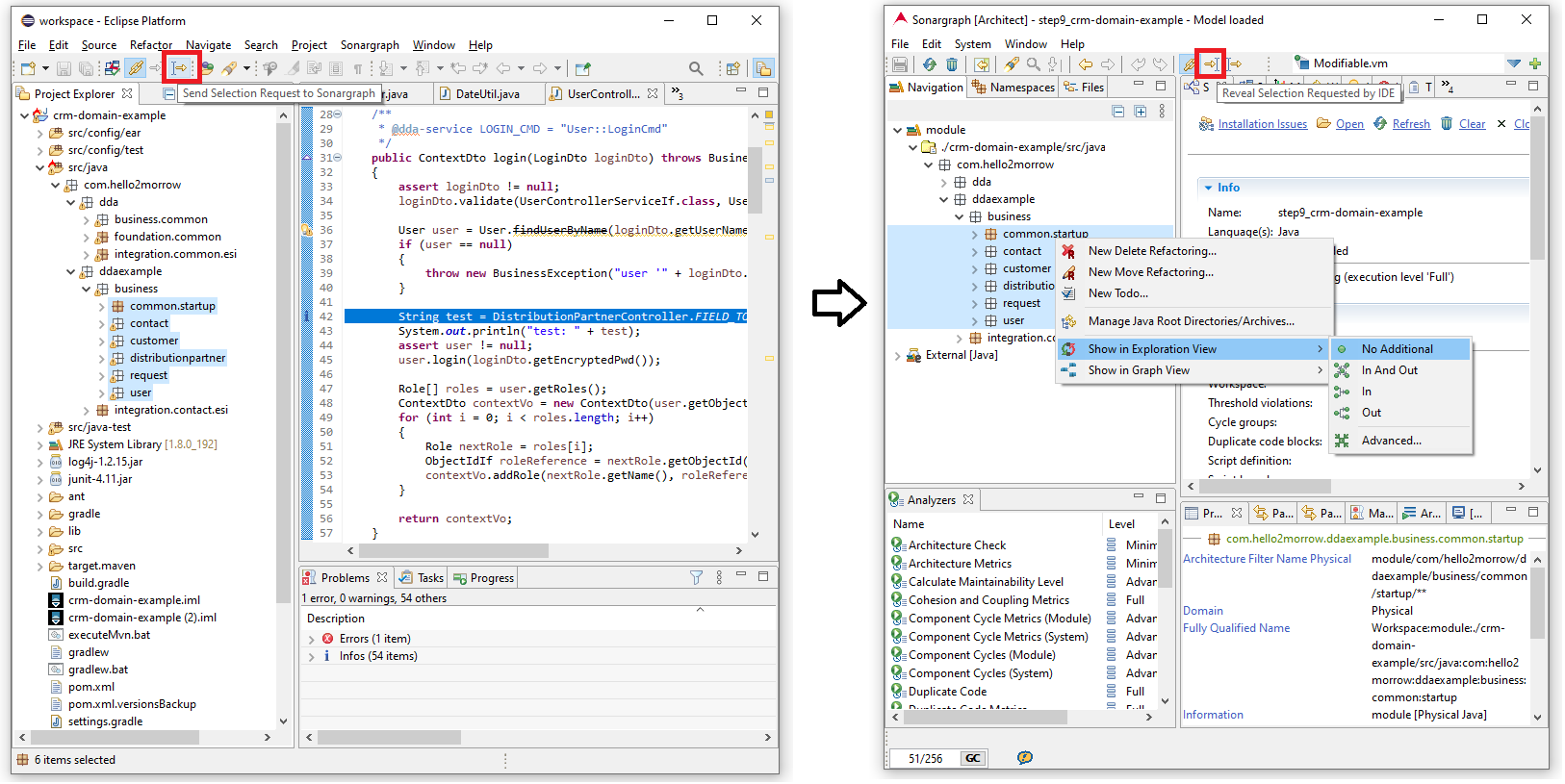As of version 11.1, Sonargraph offers a close integration with the Eclipse plugin to make it easier to fix issues right away when analyzing the code base in Sonargraph. And also vice-versa, making it easy to investigate dependencies using Sonargraph's advanced visualizations when coding in the IDE.
NOTE
The integration is currently only implemented for the Eclipse plugin!
Interactions
-
 Connect / Disconnect: If selected, the application listens to incoming selection requests.
Connect / Disconnect: If selected, the application listens to incoming selection requests.
-
 Send Selection Request: Information about the current selection is sent.
Send Selection Request: Information about the current selection is sent.
-
 Reveal Selection Request:
Reveal Selection Request: Sonargraph -> IDE: The matching element is highlighted in the 'Package Explorer' or 'Project Explorer' in Eclipse and if
the selection has been within a source file in Sonargraph, the editor is opened automatically in Eclipse and the matching
line is selected.
IDE -> Sonargraph: The matching element(s) are selected in the 'Navigation' view. From there the appropriate
visualization can be opened via the context menu.
NOTE
The following preconditions must be fulfilled for the integration to work:
-
The same Sonargraph system must be opened in Sonargraph and the IDE.
-
The receiving application must be 'connected', i.e. must listen to incoming selection requests.
NOTE
You need to manually trigger a refresh (F5) in Sonargraph after changing code in the IDE.
Configuration
Default ports for listening to selection requests are 42420 (Sonargraph) and 42421 (IDE). This can be changed via a preference page in Sonargraph or via the menu → in Eclipse.
NOTE
The configuration is shared between the two applications, so that ports need to be configured only once. Just re-connect in the other application to activate the new configuration.


